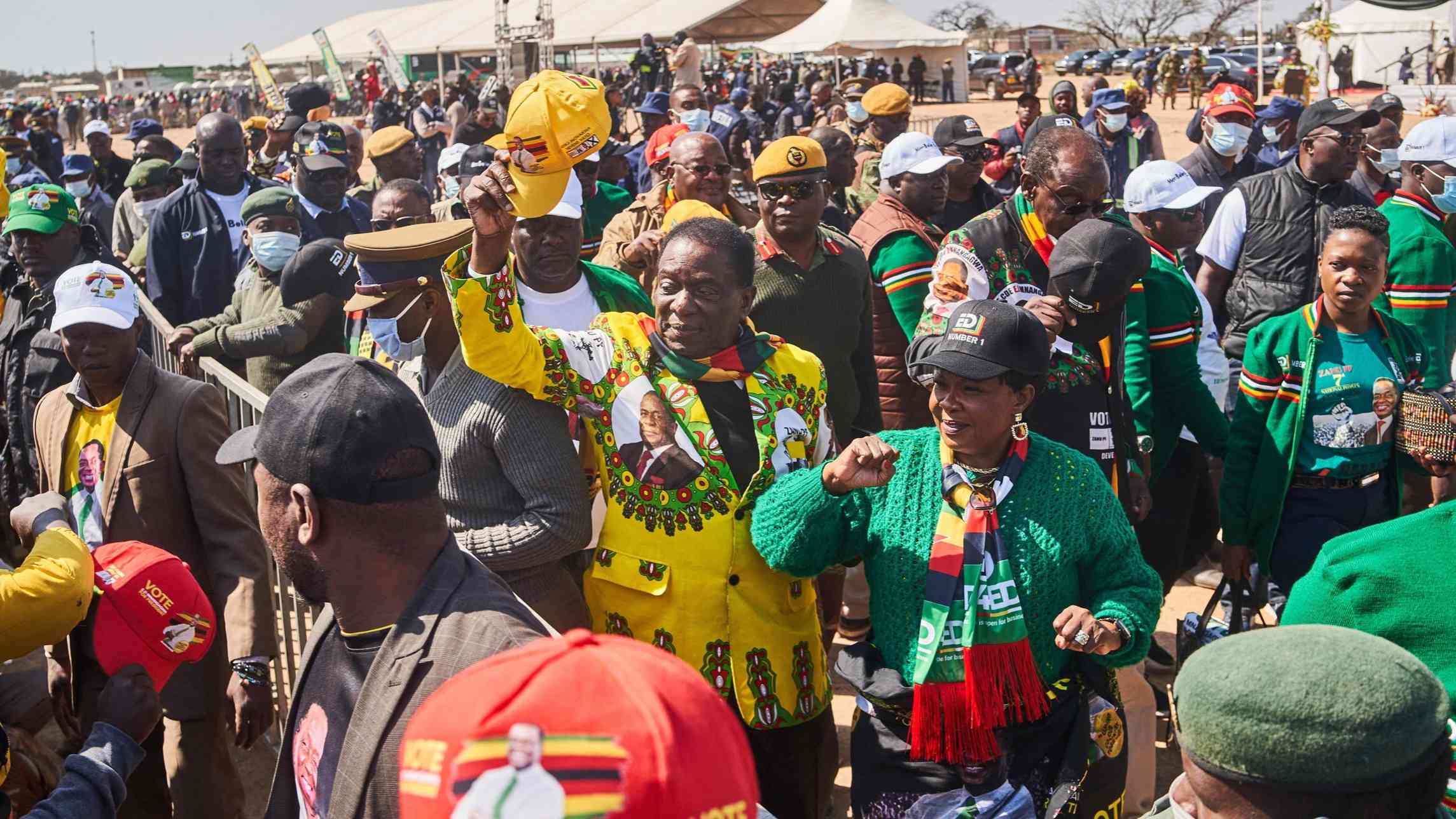
And the winner is . . . In two weeks’ time a five-yearly ritual of electoral injustice and malpractice will unfold in Zimbabwe. The astonishingly brave supporters of the main opposition party will defy appalling intimidation to cast their votes.
On their minds will be the dream of unseating the ruling Zanu-PF party for the first time since independence 43 years ago. As the count begins, journalists, observers and diplomats will opine on the levels of violence and skulduggery and how they compare with previous polls.
Hopes will be raised that at last democracy might deliver. And then, by a sliver of a margin, it will emerge that President Emmerson Mnangagwa, the successor of that other great hoodwinker of election monitors and abuser of the democratic process, Robert Mugabe, has won another term.
Diplomats will have to decide how much of a fuss to make — if any, given that sometimes after elections such as these they are inclined to make the weaselly claim that it is better not to. So what is the point of this charade? And how, then, do tyrannical systems fall? (Have no doubt: Zimbabwe’s government is increasingly tyrannous.) Kofi Annan’s idealistic response to such questions — after he had shed his UN mandate — was that you had to keep plugging away. Ultimately, he argued, an accountable government was the only way to run a country.
Autocracy, he said, even when it brought stability and relative prosperity as in Rwanda, was doomed to disappoint. He was right. Recent history in Zimbabwe’s northern neighbour reinforces his case about the power of elections. Kenneth Kaunda led Zambia from independence for 27 years before losing its first multi-party elections in 1991 — and stepping down from office.
Democracy, however shaky sometimes, has taken root. There are also cases of incumbents stepping down elsewhere in Africa after their term ends. But the drama of 1991 says more about the sentimental Kaunda than about ending autocracy.
Zimbabwe’s opposition, the Citizens Coalition for Change, says it has no option but to go through the election process. But the obstacles the regime has thrown in its path are more challenging even than in Mugabe’s day.
The police have drawn on sweeping powers to ban scores of its rallies. The judiciary has been suborned. Official trickery even forced the opposition to give up its old name. As before, voters have been disbarred and there is no independent radio or TV.
- MUCKRAKER: The grapes are sour anyway
- Govt curbs human trafficking
- Rwanda MPs oppose contraceptives for 15 year olds
- Don’t meddle in Rwanda politics, Zim teachers warned
Keep Reading
The only question is how the regime can rig the election in a way that does not seem absurd. I have done my share of observing the ritual over the years. I covered my first parliamentary election there in 1995, reverentially noting that as a cause for “mild celebration” human rights monitors were standing idle. Wrong, wrong, wrong.
The real lesson was this: canny autocrats know that when the opposition is weak you can afford light touch electoral regulation.
As Zimbabwe’s increasingly violent subsequent elections showed, it’s when there is a threat that autocrats act. Sometimes they are ousted. Most often it is from within, as happened to Mugabe in 2017 in a palace coup — frequently posited as the most likely scenario for the end of Vladimir Putin’s rule in Russia.
Sometimes it’s from without. The unifying factor tends to be a failing economy. One veteran Beijing watcher likes to say that the only thing keeping China’s president Xi Jinping awake at night is the health of the economy.
Back in 1991, the then president of Kenya, Daniel arap Moi, is said to have upbraided Kaunda for resigning, saying he had always told him that all he had to do was keep bread on the shelves. (He hadn’t.)
The only reason Zanu-PF has defied this law is that it has a pressure valve: swaths of its impoverished population have moved to South Africa.
Mnangagwa will fall eventually even though he has close allies in Moscow and Beijing, but only after further destruction of the economy and state. In the meantime, there are two lessons for following this election. The first is for diplomats.
If Mnangagwa prevails after relatively little violence, they should not be tempted to call the vote “credible”. That would be a lie given the backdrop. It would also set a dire template for the region. The second has broader resonance: beware hope. Every five years it raises its head.
I was among those daring to hope that if all went well Mnangagwa could be an improvement on Mugabe. (Expect this syndrome in the west if one of the siloviki, the hard men of the Kremlin, supplants Putin.) And now here we go again. I hear the polls are desperately close.







